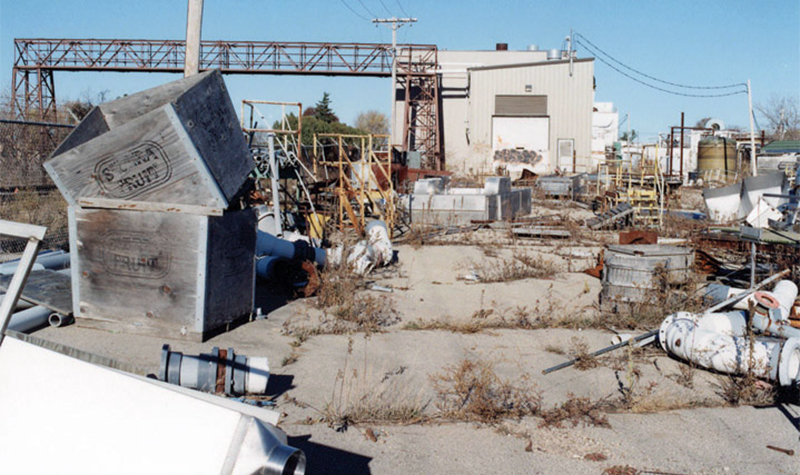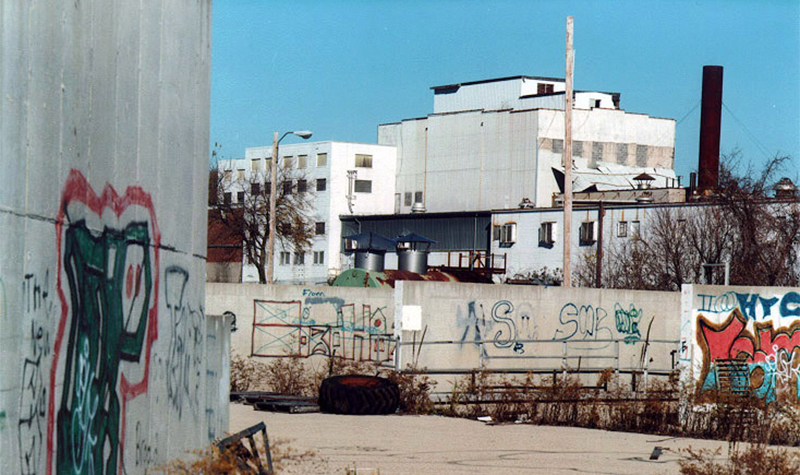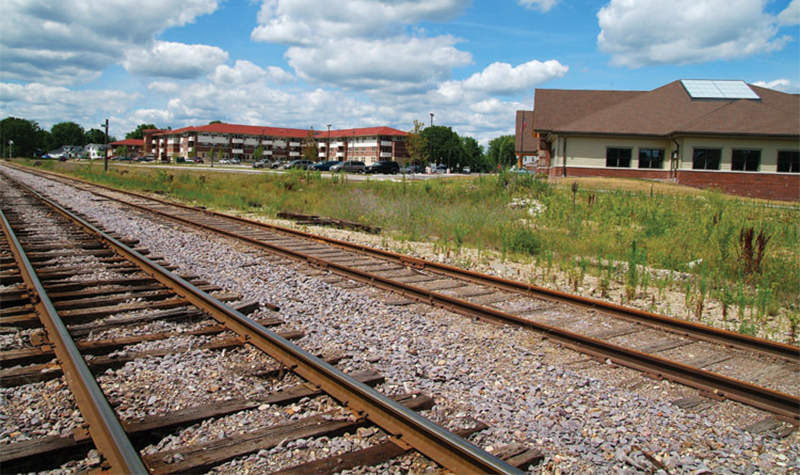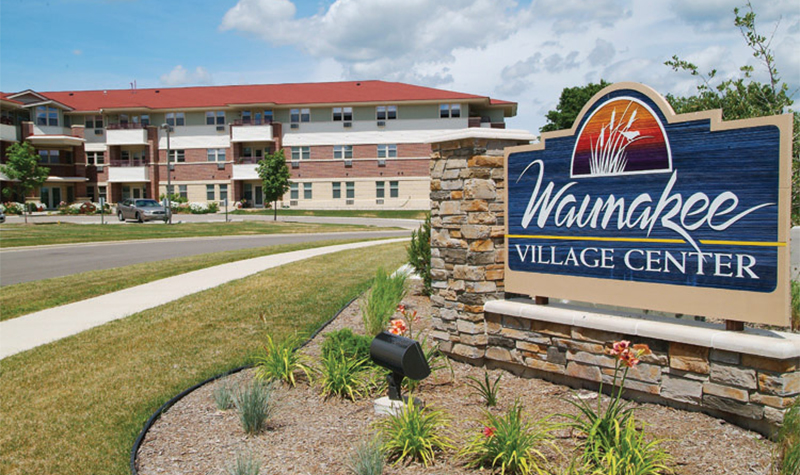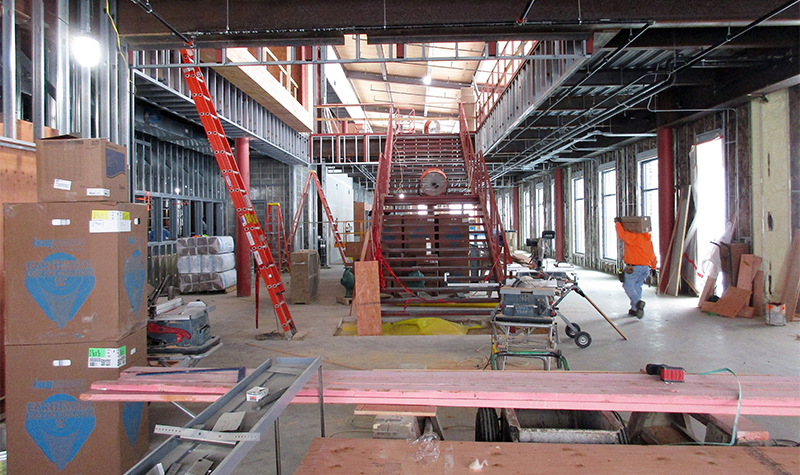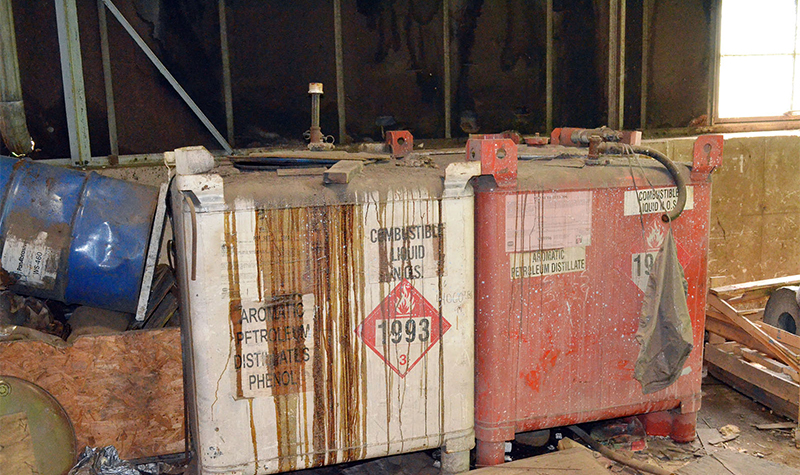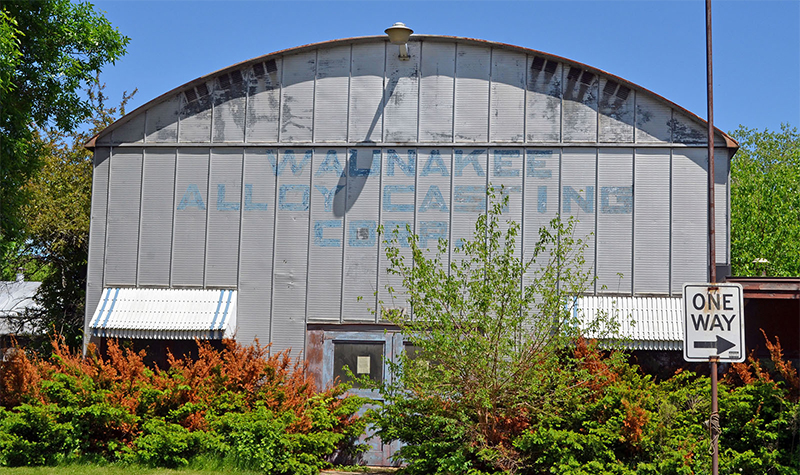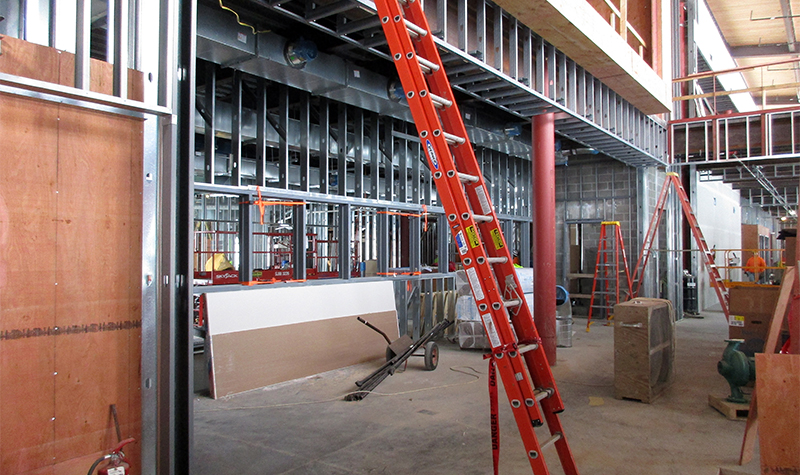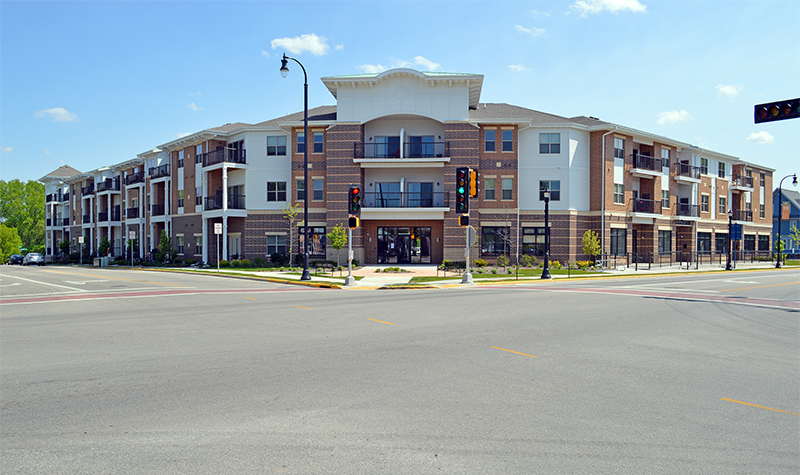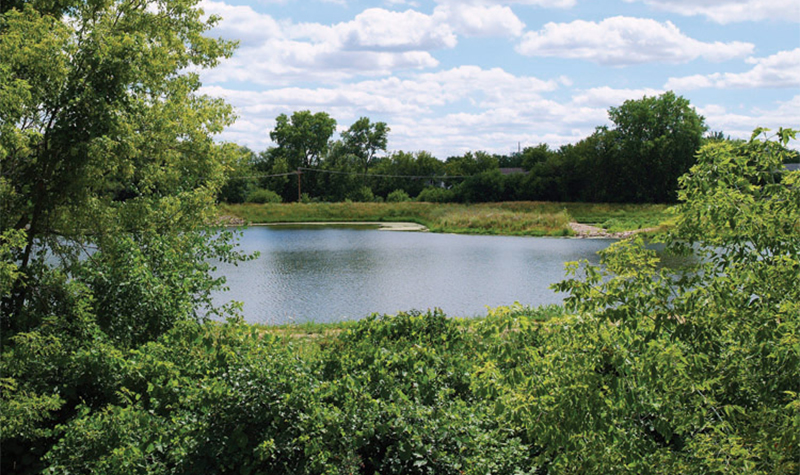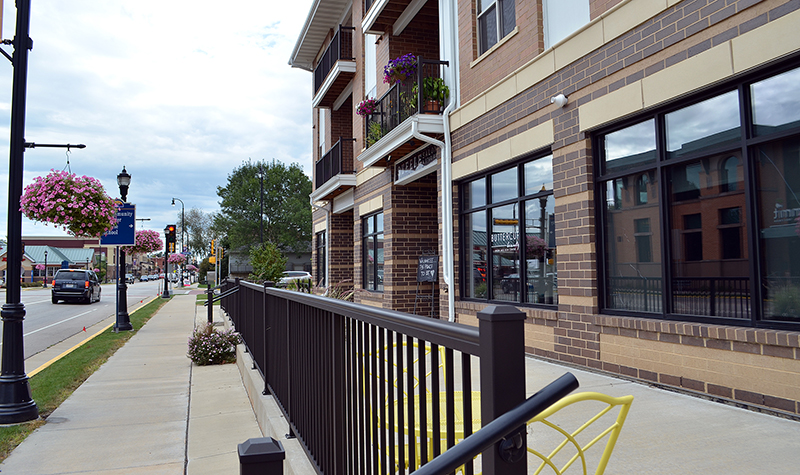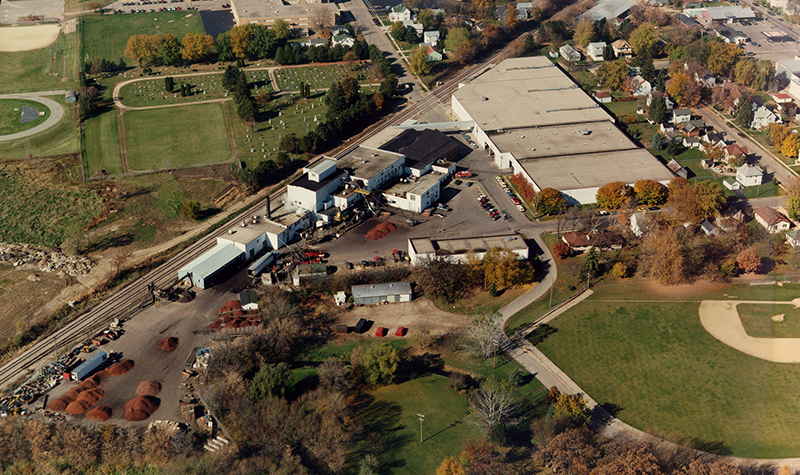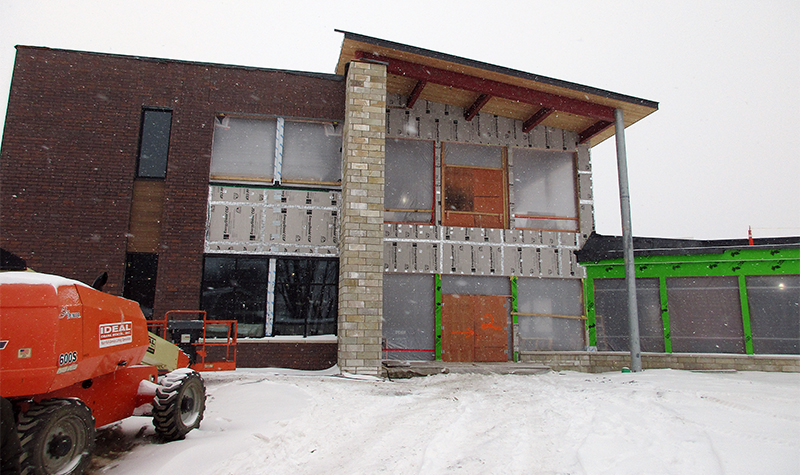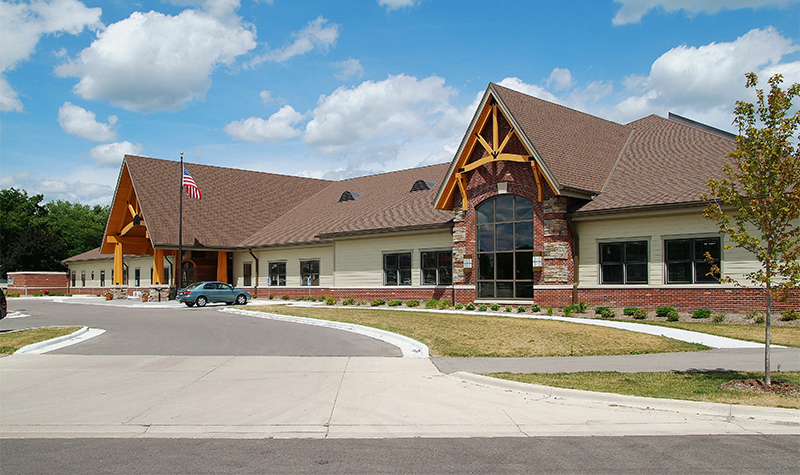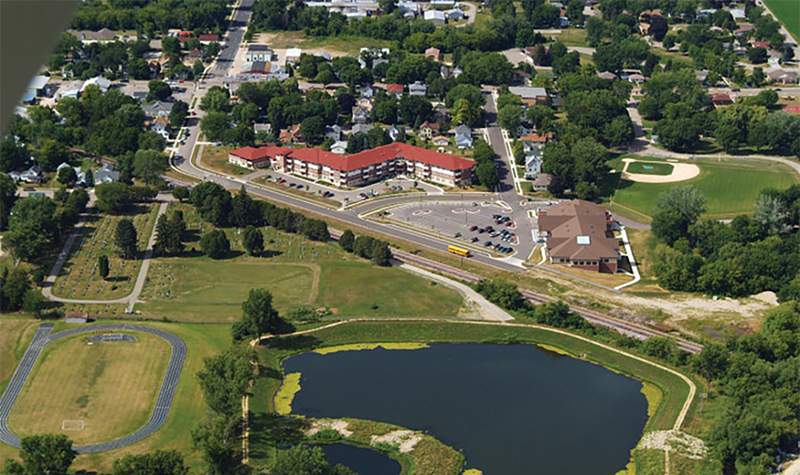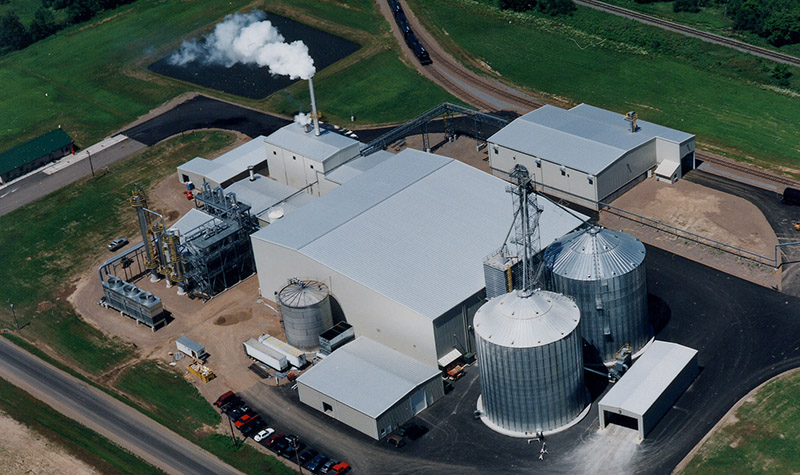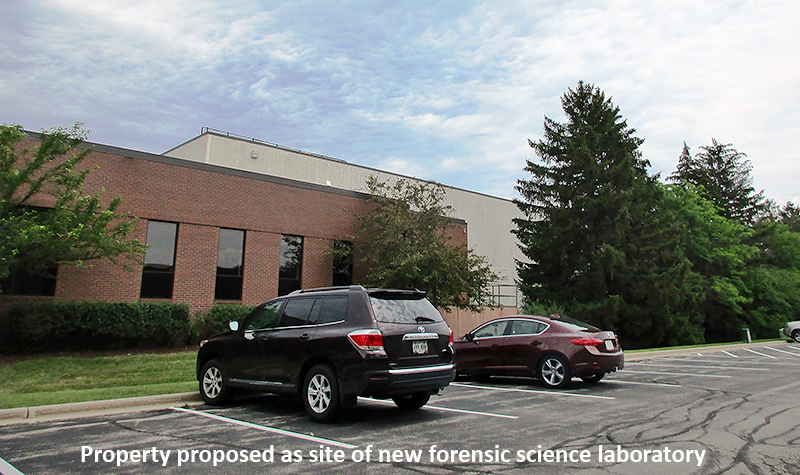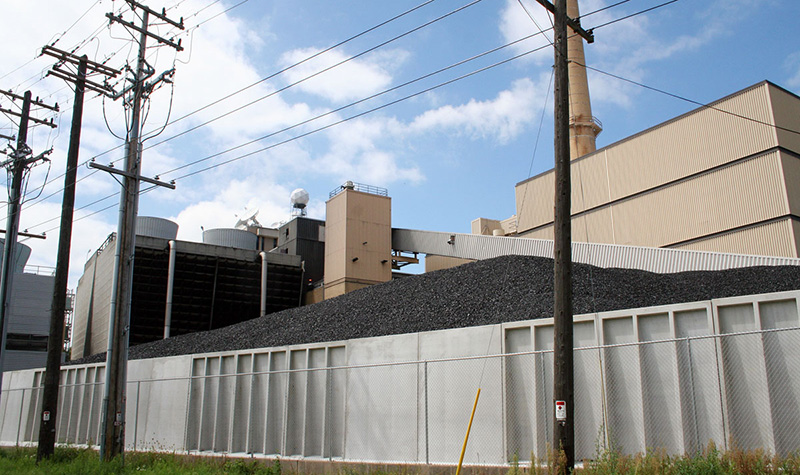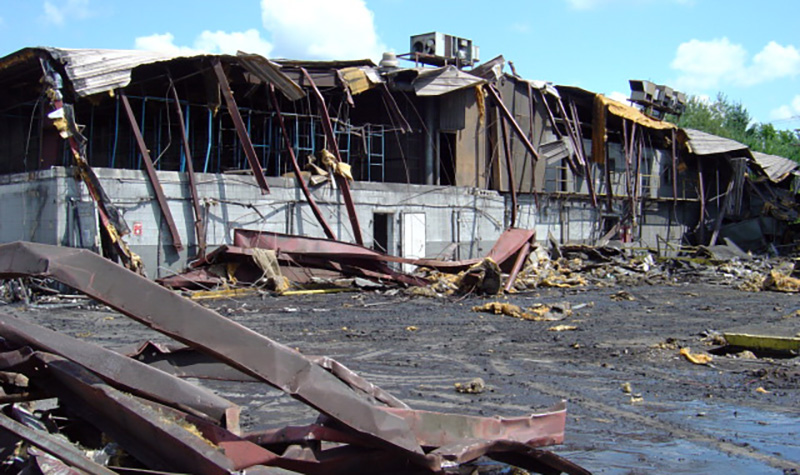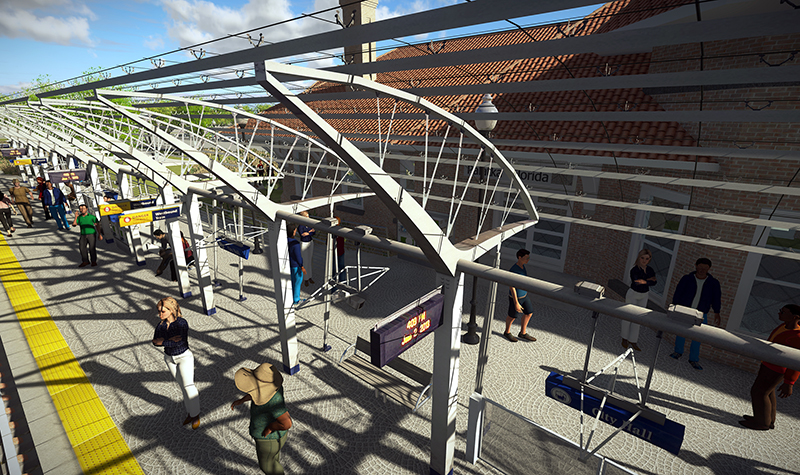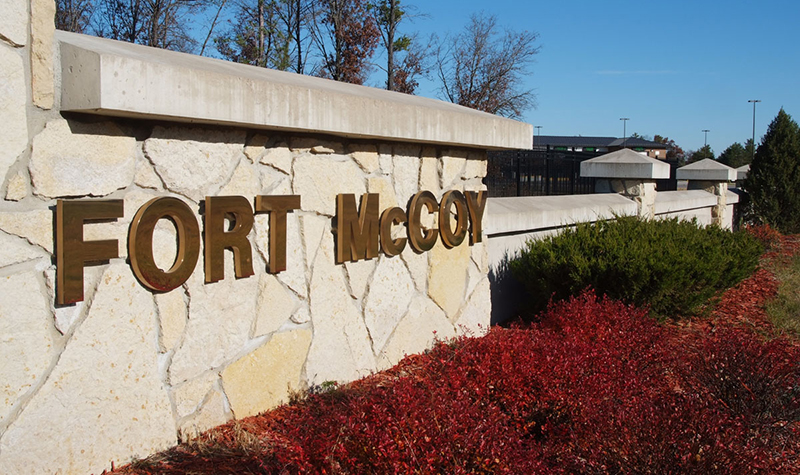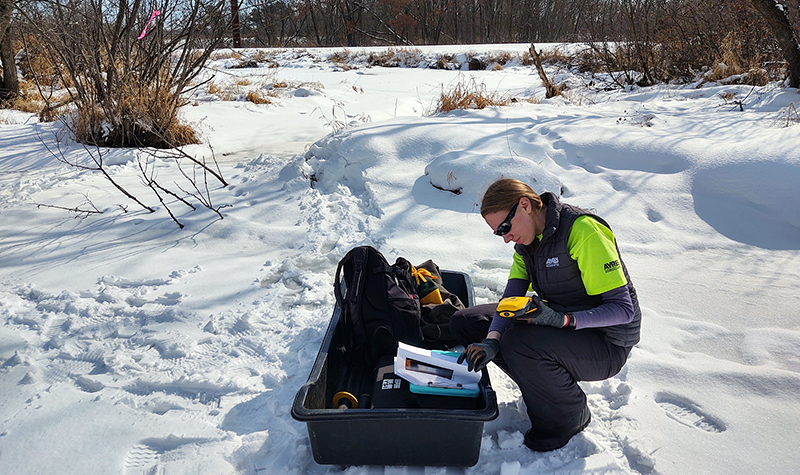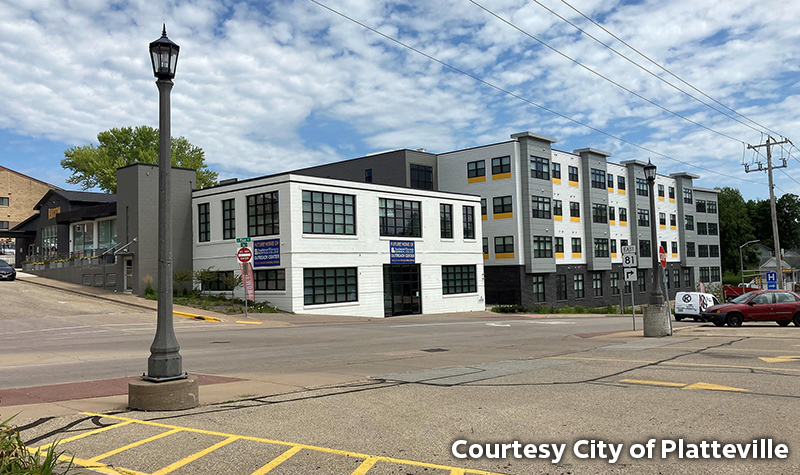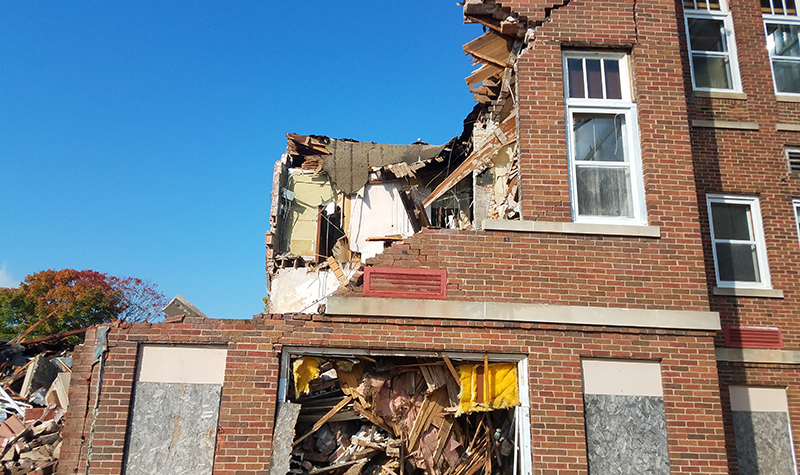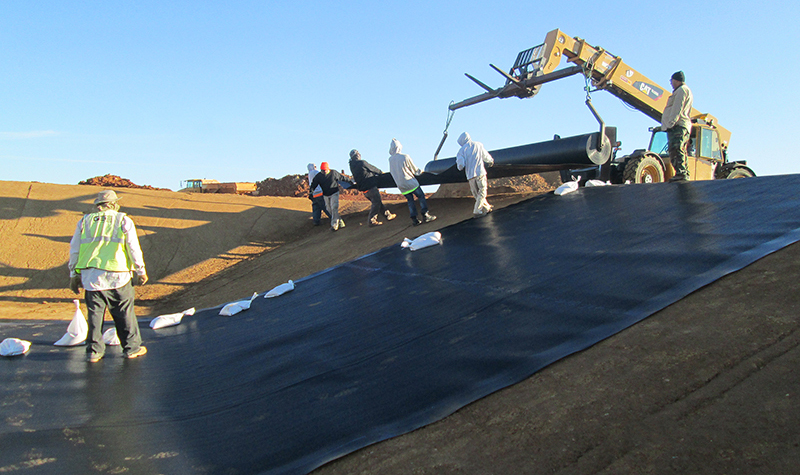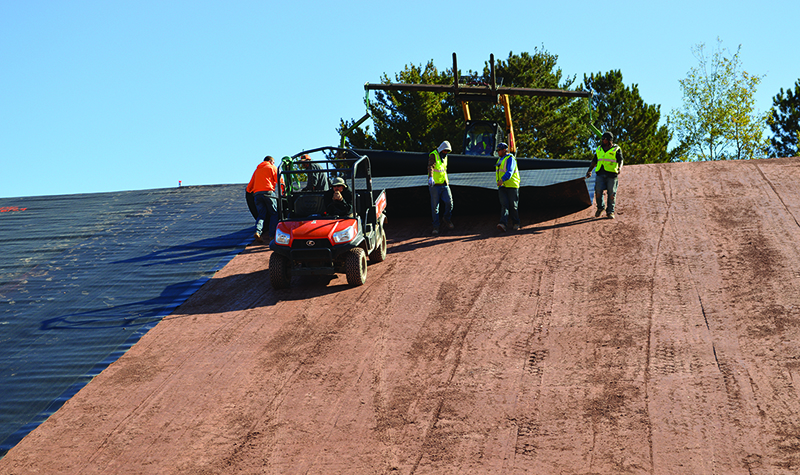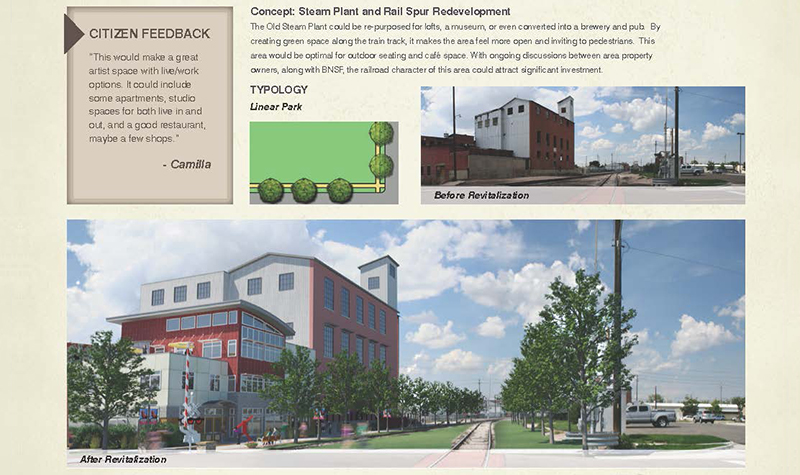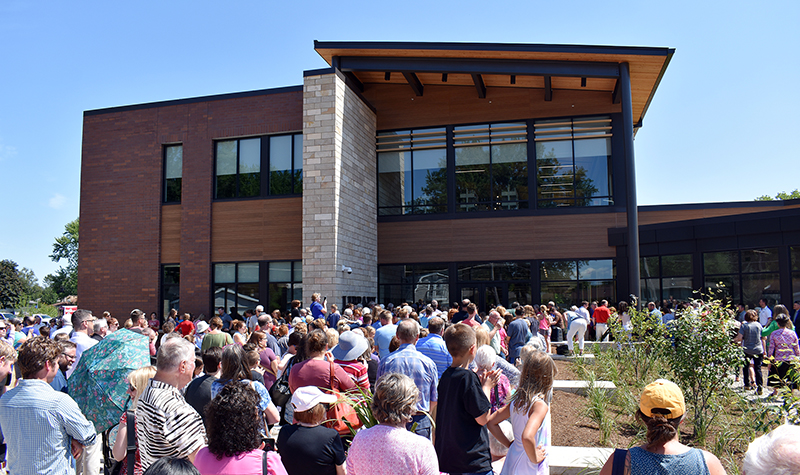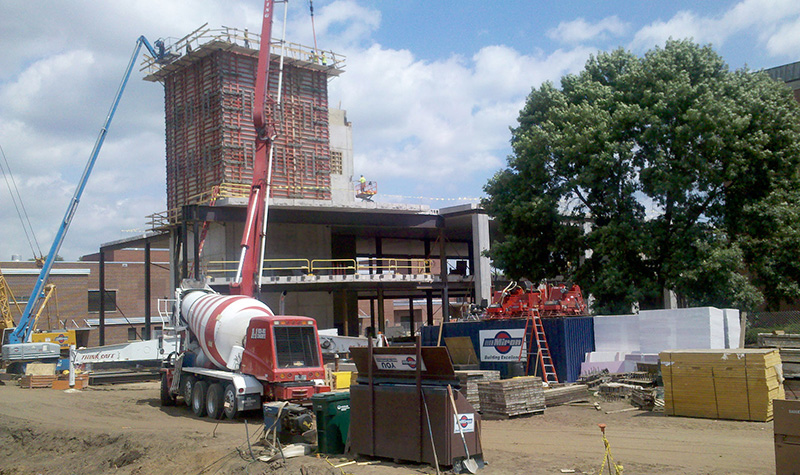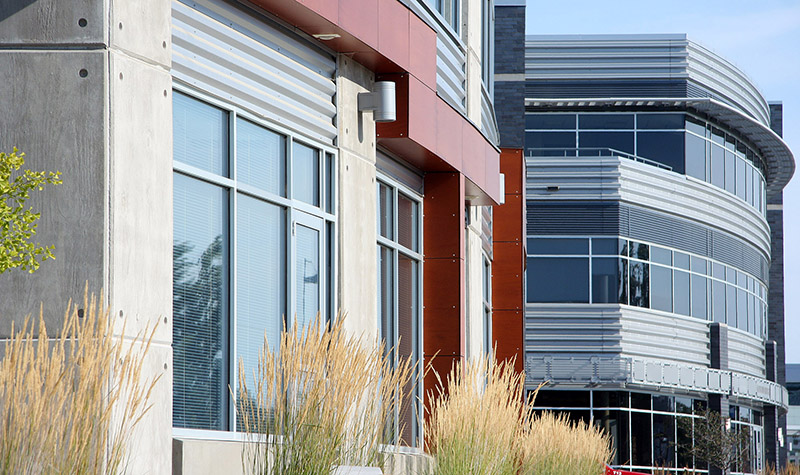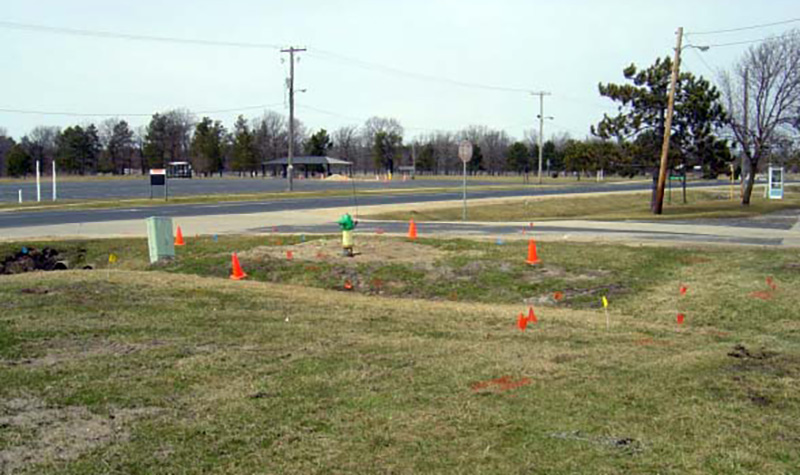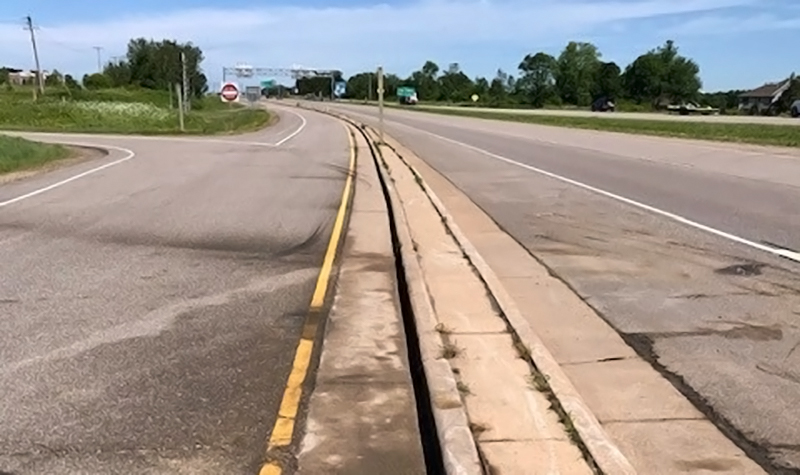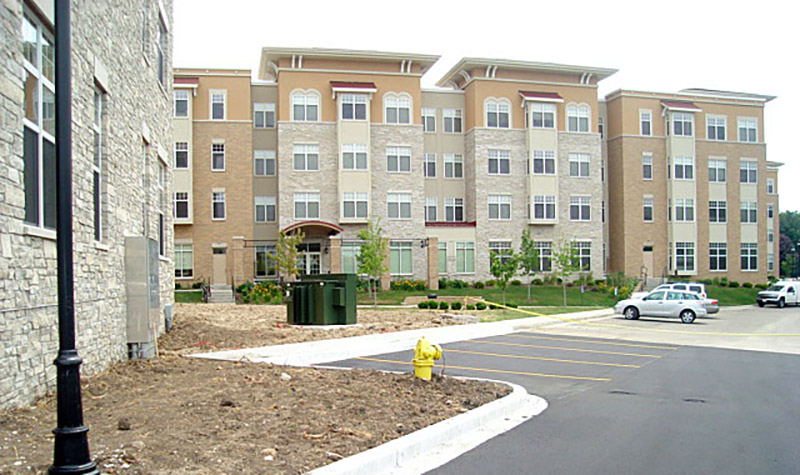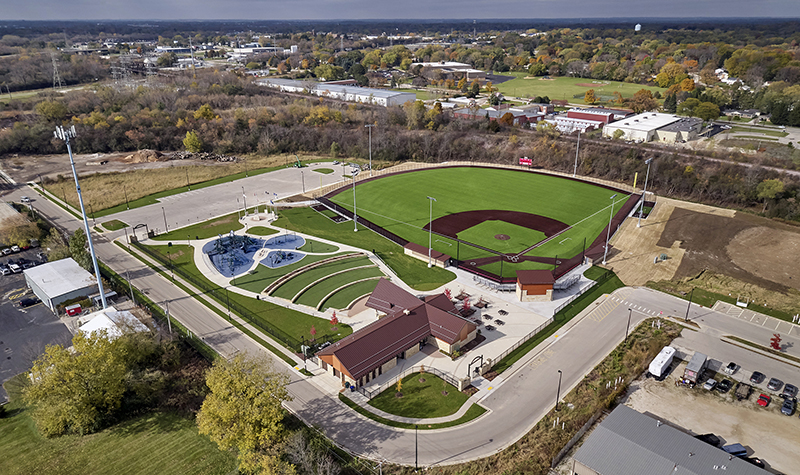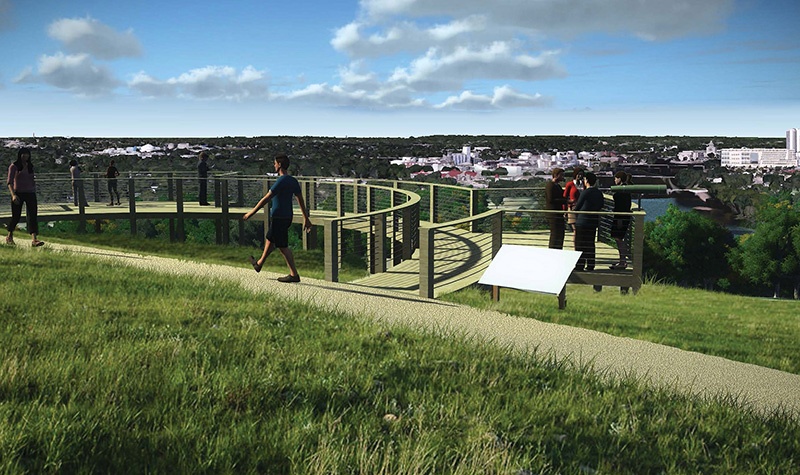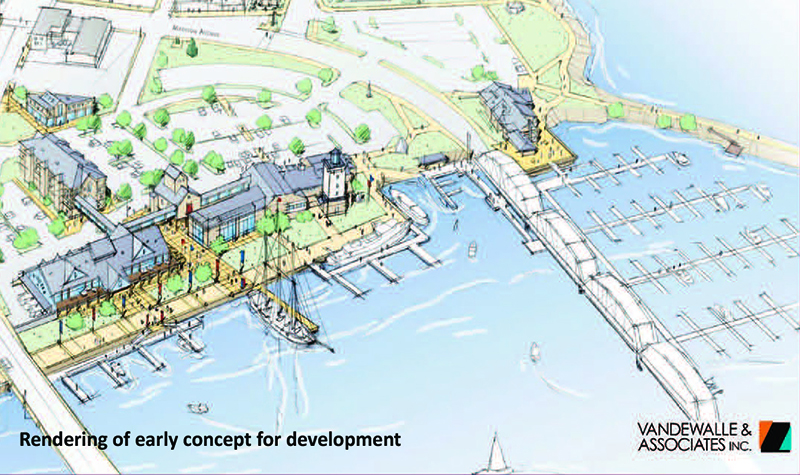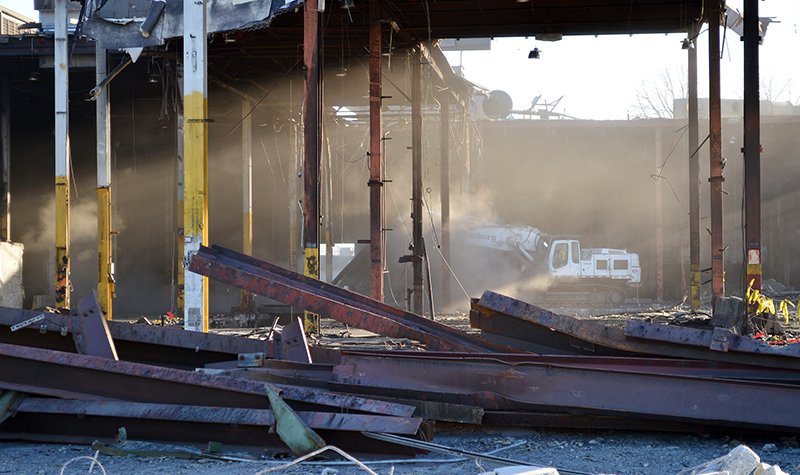Waunakee Brownfield Redevelopment Projects
« Return to Project SearchAyres has assisted the Village of Waunakee for more than 15 years, guiding community leaders through several brownfield redevelopment projects that have replaced empty canning and foundry facilities and other blighted buildings with a community center, senior housing, a pond, condominiums, retail businesses, and soon a public library.
Stokely Canning Site Redevelopment
The Village retained Ayres to assist with managing environmental concerns at the former Stokely canning plant site and to prepare and implement successful grant applications.
The project involved the redevelopment of the former Stokely Canning Factory, which had been used primarily as a vegetable processing and canning facility. The site is surrounded by a community park, schools, and single-family homes. Three parcels were included in the redevelopment project, which when completed created an 84-unit assisted living senior center on 3 acres; a 45,000-square-foot, multi-generational community and recreation center on 4.5 acres; green space; connecting pedestrian/bicycle trail; and a large regional stormwater detention basin on 8 acres to address frequent stormwater flooding issues.
Project attributes include the following:
Elimination of a very large, unsafe, blighted area in the center of the Village
Removal of safety and child endangerment concerns associated with the adandoned buildings
Restoration of the environment (ground and surface water and soil)
Creation of a centrally located community and recreation center
Alleviation of significant local flooding and minimization of sediment loading to Six Mile Creek and nearby Lake Mendota
Preservation of greenfields
Creation of many new jobs
Creation of desperately needed assisted living senior apartments
Ayres assisted the Village with applications for brownfield, site assessment, stewardship/greenspace, and stormwater detention basin grants. The Village received the following grants:
$625,000 in Wisconsin Department of Commerce brownfield grants
$160,000 in Wisconsin Department of Natural Resources (WDNR) site assessment grants
$150,000 Urban Nonpoint Source Pollution Storm Water Grant
$62,000 Community Development Block Grant from Dane County
$221,647 Stewardship Grant
Ayres performed a Phase 1 environmental site assessment (ESA) and a Phase 2 investigation as required for submittal with the grant applications. Tasks included management of lead paint, soil, debris, groundwater, and any previously unidentified solid or hazardous waste materials. Site capping and grading was completed to promote runoff and reduce infiltration into fill materials.
Ayres prepared asbestos abatement specifications, oversaw the abatement process, and hired the abatement contractor. Services included on-site reviews of abatement and air monitoring/clearance work performed by subconsultants. Ayres also oversaw the abandonment of an approximately 350-foot well, including removing the pump and piping.
Ayres prepared the Chapter 30 permit required for demolition and grading disturbance. Services included weekly coordination meetings between Ayres and the Village, railroad coordination efforts during demolition, and demolition oversight and quality assurance/quality control. Staff prepared all of the factory deconstruction bidding plans and specifications and provided on-site deconstruction oversight of all buildings on the site.
Ayres designed and oversaw construction of an 8-acre regional stormwater detention basin that provides much-needed flood relief and water quality improvements for stormwater flow to Six Mile Creek before draining into Lake Mendota.
Ayres designed a bicycle/pedestrian trail around the detention basin and a prairie garden and community vegetable/flower gardens. Interpretive signs installed along the trail serve as an instructional tool for students attending the adjoining schools.
The Village of Waunakee received the International City/County Management Association 2007 Community Sustainability Award for the project.
Madison and Main Streets Brownfield Redevelopment
The North Madison Street and Main Street redevelopment project is part of the Main and Madison redevelopment project in downtown Waunakee, a stone’s throw from the Stokely Canning Factory redevelopment project. Many buildings required inspections before demolition, and much of the surface soil on these multiple parcels required remediation (encapsulation) before the area could be redeveloped.
Ayres assisted the Village with building demolition, property acquisition, program compliance, soil remediation, and soil cap design using two $200,000 Ready for Reuse cleanup grants from the WDNR and a $350,000 Department of Commerce Brownfield Grant. Two $30,000 WDNR Site Assessment Grants were used in the assessment and redevelopment of the area.
Challenges included coordinating remediation with site redevelopment and complying with the grant’s administrative requirements, including community involvement and communication. Ayres staff worked closely with the Village administration and Village Board by counseling them on the acquisitions of the properties to mitigate future environmental liability.
Ayres assisted the Village in successful grant applications for $810,000 to prepare this site for redevelopment. Services included acting as the Village’s on-site project representative during building demolition activities, preparing the permits for the demolition project, and conducting surveys for asbestos-containing materials before demolition.
Much of the impacted soil was encapsulated beneath a new roadway constructed through the center of the development. This creative use of a street as an engineered cap to encapsulate impacted soil allowed the Village to use remediation grant dollars to partially pay for the new roadway into the development site. The project also incorporated some of the contaminated soil into the berms of a stormwater detention basin constructed using grant money.
The completed redevelopment consisted of a $15 million commercial, condominium, and green space development.
Waunakee Alloy Site Redevelopment
The Village retained Ayres to complete an environmental investigation at the Waunakee Alloy foundry site to determine the need for remediation before site redevelopment. Before operation ceased in 2009, the property was used for a non-ferrous metal foundry casting operation and rolling mill machinery.
The alloy casting company was built in 1953, and six additional buildings were progressively added through 1982. The structures were used for manufacturing, organization, storage, and administration of the Waunakee Alloy Casting Corporation. Arc furnaces were located in the main building/foundry building and used extensive electricity to melt metal, similar to the arc welding process. Scrap pieces from other steel mills were brought to the foundry in drums and melted down to create new alloy castings.
Ayres prepared grant applications and secured brownfield grants from the Wisconsin Economic Development Corporation (WEDC) for investigating and redeveloping the property. Ayres assisted the Village with building demolition, property acquisition, program compliance, soil remediation, and cap design using a $150,000 Department of Economic Development Brownfield Site Assessment Grant followed by another $500,000 Idle Industrial Sites Redevelopment Grant. Ayres also assisted the Village by securing the EPA Removals Program contractors to containerize and dispose of mercury and PCB impacted building materials at a cost of over $1 million, which constituted significant savings to the Village compared with if the Village had needed to conduct these hazardous materials removals itself.
During the Phase 1 ESA and pre-demolition hazardous materials assessment of the property, Ayres discovered large quantities of free elemental mercury and leaking PCB-contaminated capacitors inside the facility. A hazardous waste contractor was retained to place the PCB capacitors into drums and to vacuum the elemental mercury and mercury-contaminated foundry sand into drums. Ayres worked with the Wisconsin Department of Natural Resources (WDNR) and U.S. Environmental Protection Agency (EPA) removals program to dispose of the mixed (TSCA/RCRA) mercury-PCB waste. Handling and disposal of the mixed PCB-mercury waste is problematic, as current federal regulations require incineration of the high-PCB concentrated capacitors but ban the incineration of mercury.
Ayres performed hydrogeologic investigations at the Waunakee Alloy facility to assess the degree and extent of subsurface impacts from the use and disposal of hazardous materials. Ayres negotiated the scope of work and prepared CERCLA level management plans (quality assurance project plan, sampling and analysis plan, and health safety plan) outlining the details of the investigation and remediation program. Investigation activities included surficial soil sampling, core hole sampling within the interior of the building, advancement of soil borings, installation of monitoring wells, hydraulic conductivity testing, low-flow groundwater sampling, soil and groundwater analysis, and analysis of remedial options.
Demolition of the site paved the way for a new 40,000-square-foot library, which opened August 1, 2019.
The American Council of Engineering Companies of Wisconsin awarded the project a 2020 State Finalist Award.

Project Information
Client's NameVillage of Waunakee
LocationWaunakee, WI
Primary ServiceEnvironmental
MarketLocal Government

